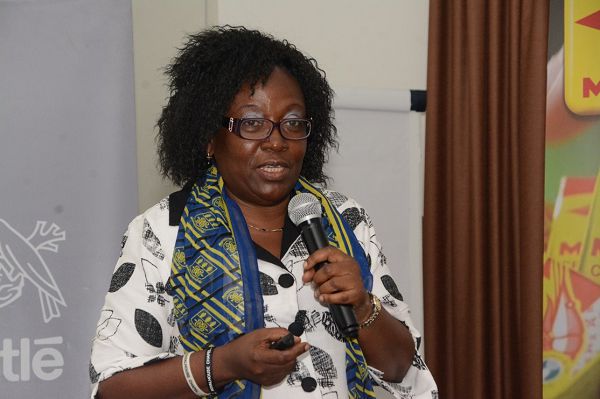
‘Prioritise food safety to reduce food borne diseases’
The Dean of the School of Biological Sciences at the University of Ghana, Prof. Matilda Steiner-Asiedu, has called for the prioritisation of food safety in the national food security discourse to help reduce food-borne diseases, which are on the increase.
She said although food safety was one of the critical pillars of security, stakeholders often downplayed it and rather prioritise the availability of food, a development which, she noted, had resulted in the increase of food-borne illnesses such as cholera, typhoid and diarrhoea.
Prof. Steiner-Asiedu made the call at a symposium to mark the 10th anniversary of the International Life Sciences Institute/University of Ghana Food Safety and Nutrition Training Centre in Accra yesterday.
The symposium was held on the theme, “10 years of food safety education: creating food safety ambassadors for sub-Saharan Africa.”
Food safety
Prof. Steiner-Asiedu said the centre had been providing formal and informal education to stakeholders in the food value chain for the past 10 years.
Food safety, she said, was as an umbrella term that encompassed many facets of handling, preparation and storage of food to prevent illness and injury to the consumer.
She said the issue of food-borne diseases, over the years, had been a major challenge for the health sector.
This led to the University’s decision to complement national intervention efforts by setting up the Food Safety and Nutrition Training Centre in 2008.
Prof.Steiner-Asiedu said despite various interventions, the burden seemed to be increasing, characterised with cholera outbreaks with the attendant loss of lives every year.
National discourse
A researcher at the Centre, Professor Kwaku Tano-Debrah, said the centre was looking forward to using its platform to facilitate the national discourse.
He said it was important for people to understand how their behaviour and activities contributed to the safety of food and how they could decrease the risk of food-borne illness.
The Food Safety and Quality Officer of the Food and Agriculture Organisation( FASO), Dr Blaise Ouattara, said food safety continued to be a global challenge, particularly in Africa, due to the increasing burden of food-borne diseases.
“Food-borne diseases are major causes of ill-health, especially among the poor, who are vulnerable because they do not have necessary knowledge and the means to access facilities that can ensure food safety,” he said.
He said currently there were 600 million food-borne diseases with diarrhoea being the frequent.
The head of the Department of Nutrition and Food Science of the University of Ghana, Dr Frederick Vuvor, said it was unfortunate that food safety only got attention in the face of major outbreaks of food-borne diseases.
Writer’s email
